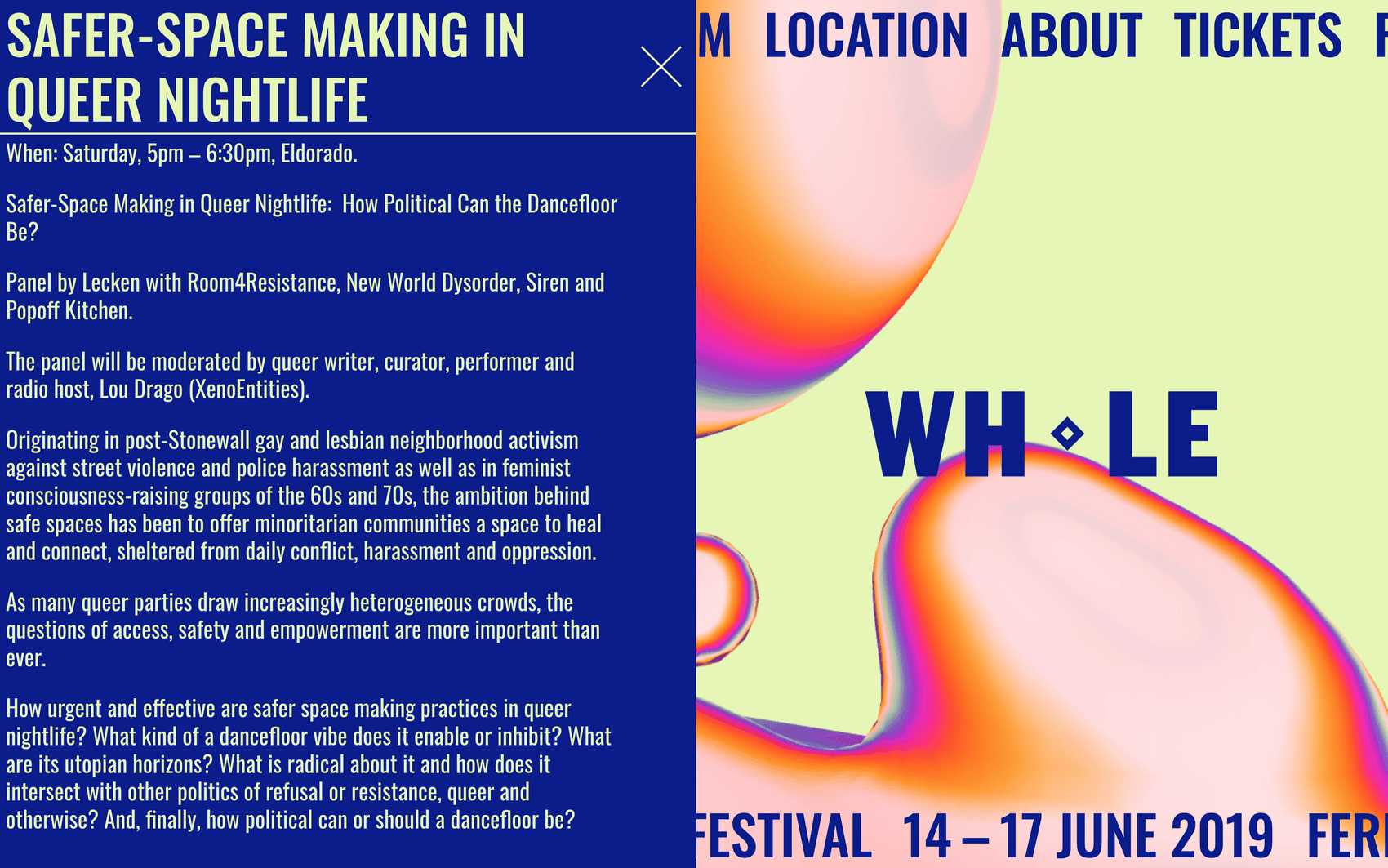Safe(r) Space
How Political Can the Dancefloor Be?
Originating in post-Stonewall gay and lesbian neighbourhood activism against street violence and police harassment as well as in feminist consciousness-raising groups of the 60s and 70s, the ambition behind safe spaces has been to offer minoritarian communities a space to heal and connect, sheltered from daily conflict, harassment and oppression. With the rise to prominence of intersectional identity politics, the notion of “safe spaces” has expanded into universities and classrooms, youth groups, activist spaces and increasingly club nights, where the endorsement of safe space principles has felt like a necessity to push back against traditionally male-dominated dancefloors.
As many queer parties draw increasingly heterogeneous crowds, the questions of access, safety, and empowerment are more important than ever. At the same time, in trying to articulate a queer politics for the dancefloor, safer-space language seems to have replaced earlier connotations of nightlife, as a place for adventure, hedonism, transgression and even militancy, with an insistence on awareness and protecting those considered to be most vulnerable. How can we make sense of this cultural-political shift? What are its political motivations and implications? How urgent and effective are safer space making practices in queer nightlife? What kind of a dancefloor vibe does it enable or inhibit? What are its utopian horizons? What is radical about it and how does it intersect with other politics of refusal or resistance, queer and otherwise? And, finally, how political can or should a dancefloor be?
We delved into these topics with members of the collectives Lecken, Room4Resistance, and New World Dysorder.
The panel was be hosted by WHOLE Festival and moderated by queer writer, curator and radio host, Lou Drago (XenoEntities).
As many queer parties draw increasingly heterogeneous crowds, the questions of access, safety, and empowerment are more important than ever. At the same time, in trying to articulate a queer politics for the dancefloor, safer-space language seems to have replaced earlier connotations of nightlife, as a place for adventure, hedonism, transgression and even militancy, with an insistence on awareness and protecting those considered to be most vulnerable. How can we make sense of this cultural-political shift? What are its political motivations and implications? How urgent and effective are safer space making practices in queer nightlife? What kind of a dancefloor vibe does it enable or inhibit? What are its utopian horizons? What is radical about it and how does it intersect with other politics of refusal or resistance, queer and otherwise? And, finally, how political can or should a dancefloor be?
We delved into these topics with members of the collectives Lecken, Room4Resistance, and New World Dysorder.
The panel was be hosted by WHOLE Festival and moderated by queer writer, curator and radio host, Lou Drago (XenoEntities).
